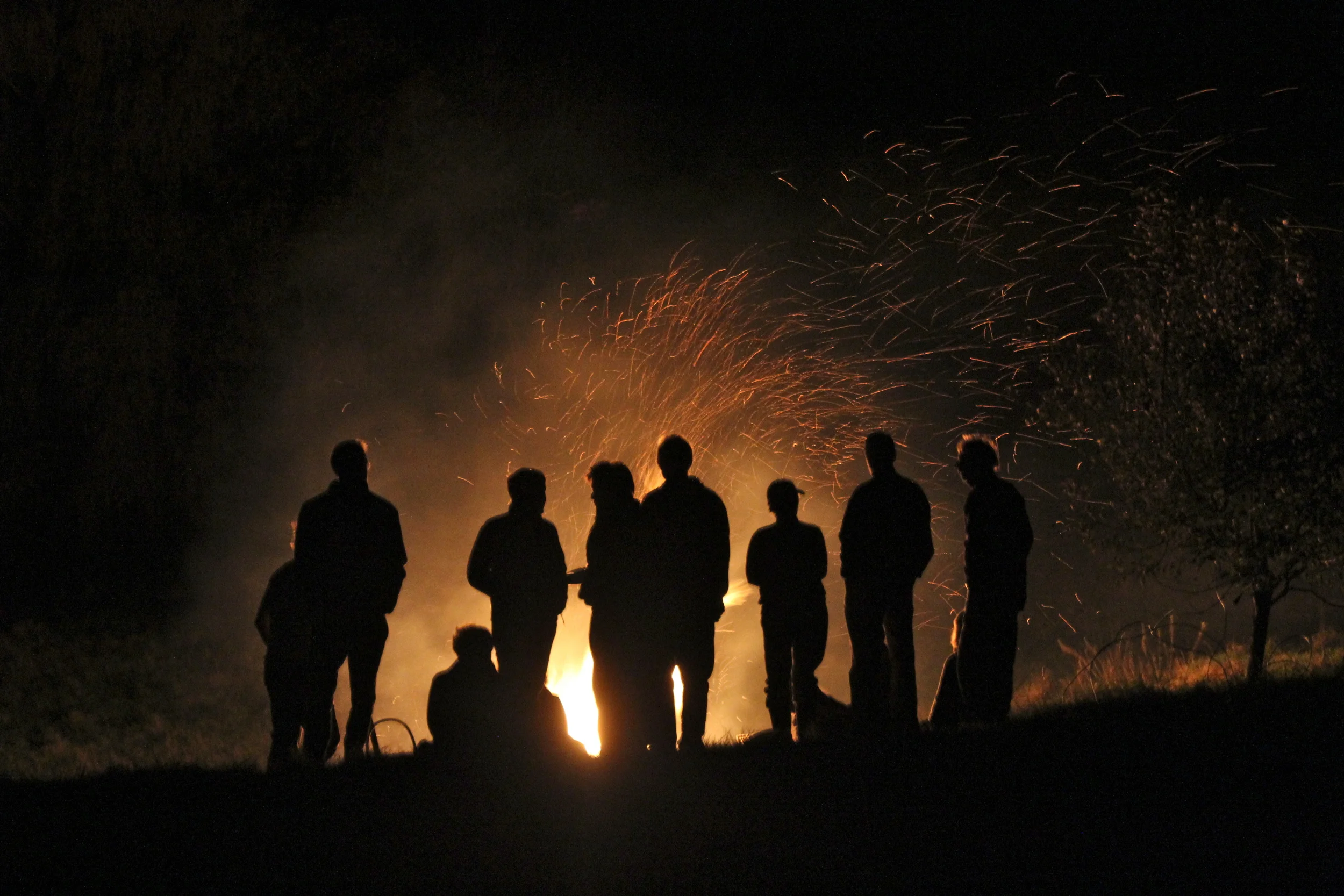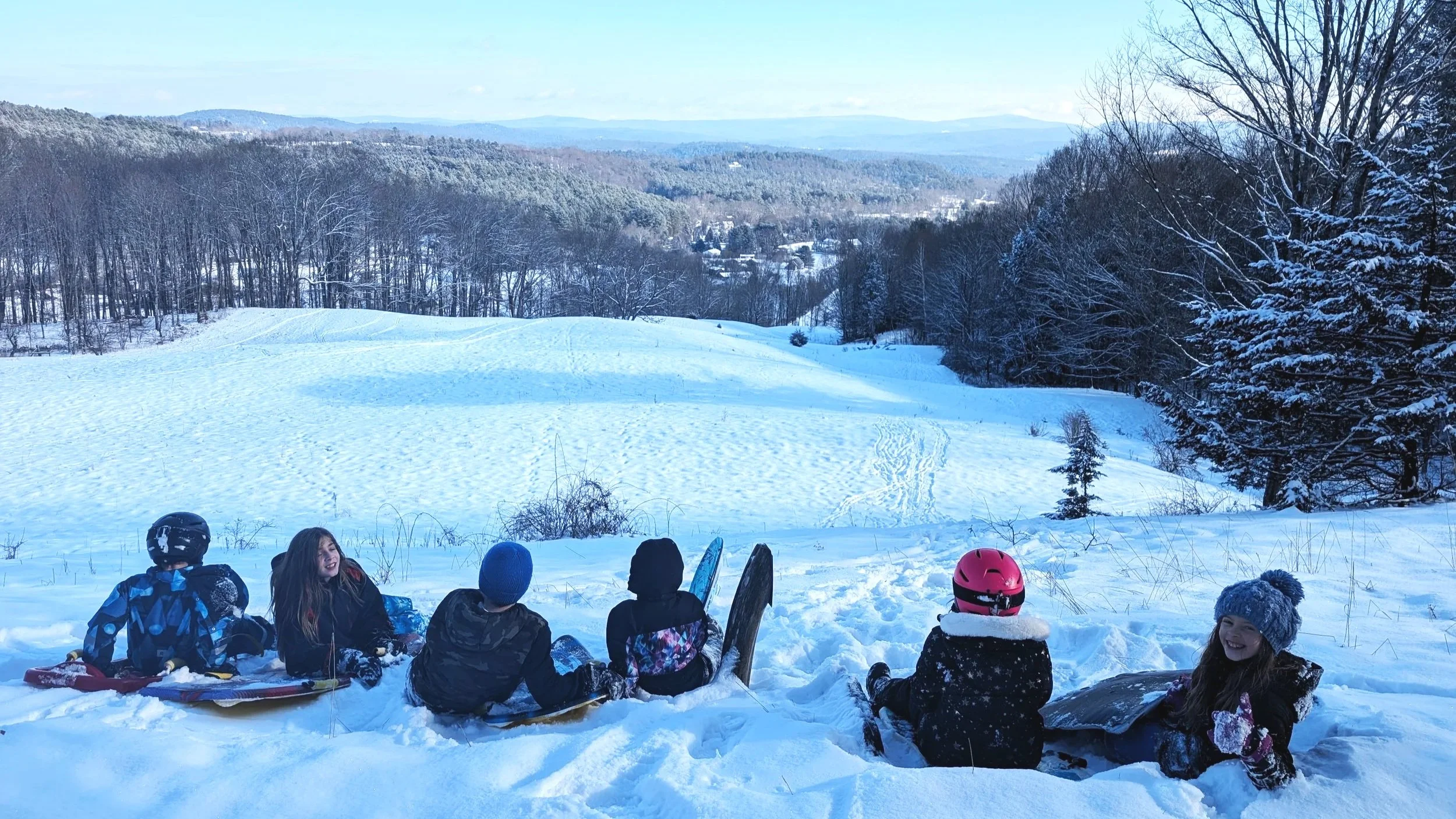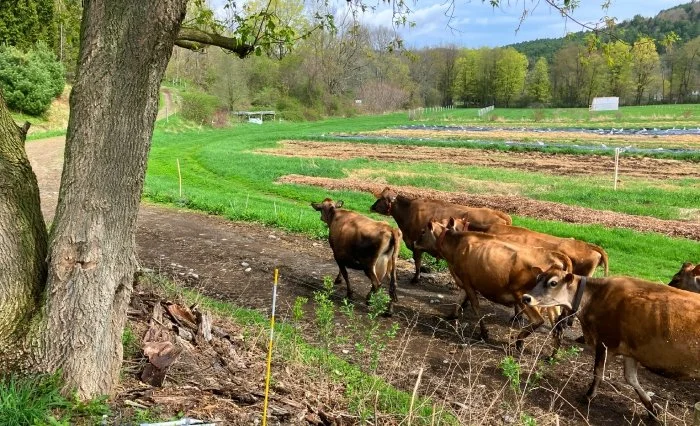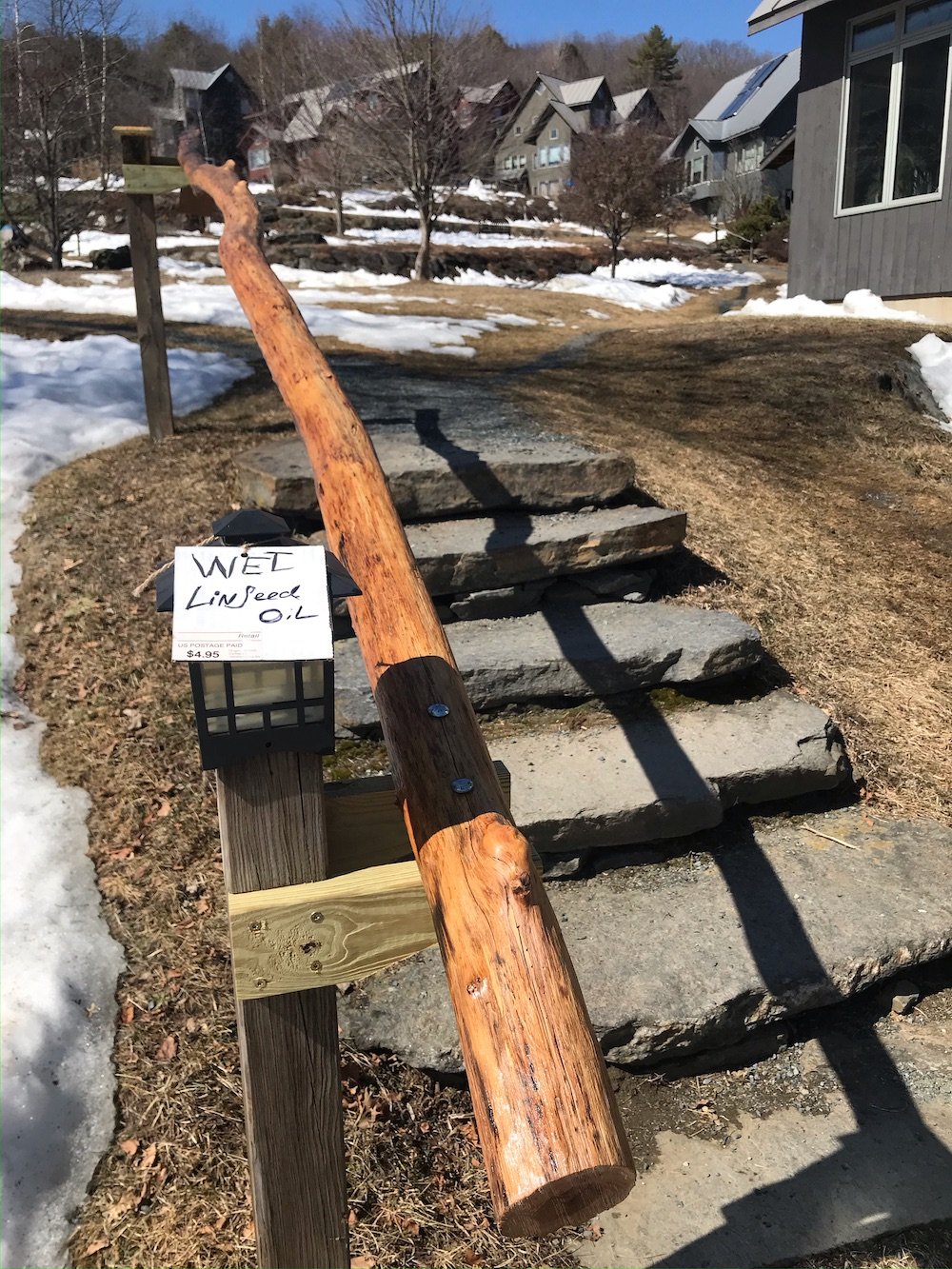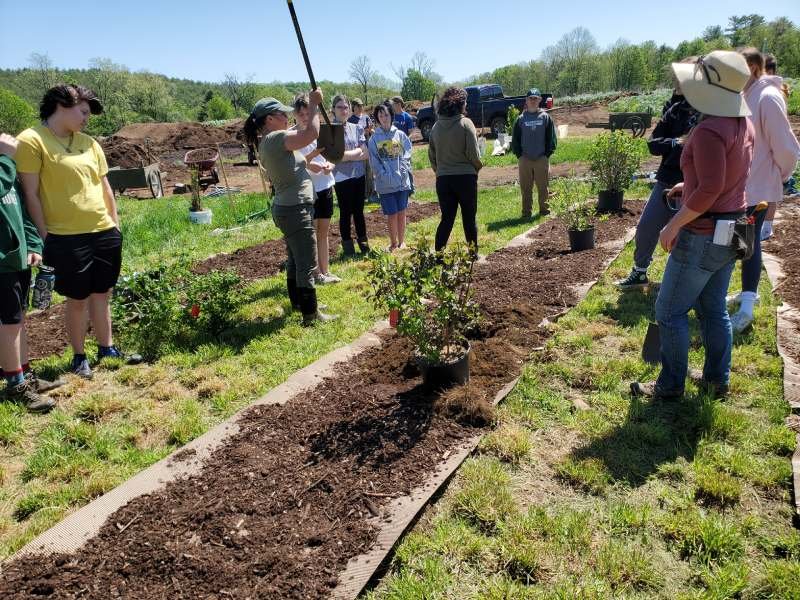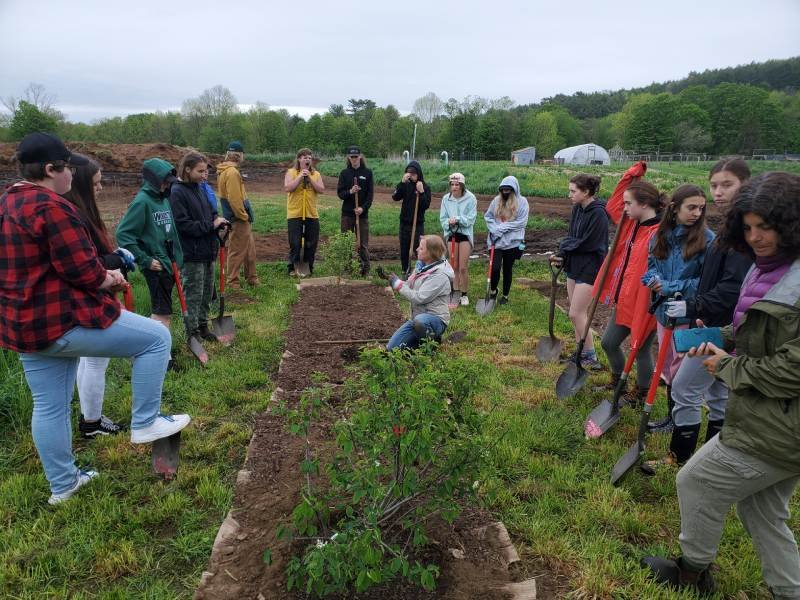Thank you for your interest in Cobb Hill Cohousing. Please read through our website, especially the links at the bottom of the “On the Hill” page. Otherwise, see below for some FREQUENTLY ASKED QUESTIONS.
What housing is available?
We list any available homes on our website, “Available Houses.” We have three types of units on-site: shared housing in the common house (3 large rooms), duplexes, and standalone homes.
How often do homes become available?
It has varied throughout the years, but turnover can be about one household every 1-2 years. Beyond what is listed on the website (if anything), we do not know when someone might announce they are moving and something more suited to your needs will pop up.
Do you have rental units?
The community owns one apartment in the common house (large room in a shared house) that we generally rent out to long term renters. Otherwise, occasionally current residents will rent out their home or a space in their home, but this is not common.
Can more houses be built on the property?
No. We are 23 households and are not growing. The size of our community was intentional and we are small compared to some others. We are also bound by Vermont’s land use and development law, Act 250.
Do you have a waitlist?
By reaching out via our website, you would be on our “interested people” list. We notify this list if a unit becomes available. Often folks have moved on to other opportunities by the time we reach back out, as it seems to be all about timing and patience, but sometimes people’s timing is flexible and they are willing to wait, forming long term relationships with us and really exploring what it means to live here prior to being able to purchase a unit.
What is the process when a unit is available?
Sales at Cobb Hill have two parts. 1) Our "exploration process" where we aim to facilitate you exploring and learning as much as possible to make an informed decision about whether this is what you're looking for as the next life adventure, whether you will thrive here -- you meet as many people as possible and have deep conversations. We all get to know each other and assess whether it seems like a good match! 2) If things are progressing positively with the community, the potential member/buyer/renter works on the transaction piece with the unit's owner.
If I move there, would I work on the farm?
We are a community with a farm, not a community farm. One family runs the farm onsite, Cedar Mountain Farm, as their business and sole income. Sometimes there are volunteer opportunities with them, or if you are looking for farm employment, please reach out to them directly. Having a working farm here is one of our core values and many neighbors purchase veggies, meat, and raw milk from them. We also collectively own and care for the various out-buildings (barns, shed, shop).
Many of us are drawn here because of the land, have our own gardens, and get involved with other forestry and land-based projects or much smaller enterprises not related to the farm business. We have 270 acres to co-manage, after all! So, while you likely wouldn’t work on the farm itself, you could opt to tap maple trees, care for the shared chickens or bees, paint a barn, pull invasive plants in the forest, weed the flower beds, grow your own veggies, and generally homestead to a large extent.
How many hours do residents need to devote to community work?
We intentionally do not have a number to answer this question. We've had many conversations about shared work! Above all, we look for folks who want to engage in life here, to learn with us, and commit to making time in their lives for community building, property maintenance, and other community-centered tasks, in addition to their own careers, households, and hobbies.
The time a neighbor spends doing the community accounting is just as important as the time another neighbor spends maintaining our septic or heating system, for example. We all take on tasks and roles according to our skills & passions (attend or facilitate all-community meetings & smaller committee meetings, shovel snow, mow grass, clean the common house, attend monthly work days, stack wood, cook a meal etc.). There is plenty to do and often a few who have more spaciousness in their lives put in much more time working on behalf of the community than others; the ensuing resentment and guilt are ongoing topics of conversation. We understand that life is full for many, especially families with young kids. We seek people who are willing and able to add Cobb Hill into the balancing act of busy lives.
Are there physical challenges to living here?
This is a very physical place to live, as we are on a large, rural acreage and are very much on a hill with many (icy) steps and (snowy) pathways. We heat with wood, so there is considerable wood moving & stacking, year-round. We park away from our homes and do not have garages, thus need to clear snow from our cars during the many months of winter. The buildings are three stories. While not everyone needs to have the same physical abilities, this is a very hands-on, active place by design.
I’m looking for a second home in VT or I wouldn't live there as my primary residence – is that possible at Cobb Hill?
Because of the nature of what we are trying to build here (trust, relationships), maintain and steward (land, buildings, etc.), and winter in VT (wood heat, shared shoveling), community members live here full time.
How has your community handled the pandemic?
We’ve been respectful of each other and had hard conversations. We have discovered vastly different risk tolerances. We adopted the VT state health guidelines because we could not agree on our own rules about shared spaces and such. Our meetings shifted to Zoom from the cozy spaces in the common house (and largely remained online until summer 2023). We suspended community meals and it took some time for folks to feel comfortable dining together. While we do not have a policy around vaccination, several people felt very strongly that everyone should be vaccinated, specifically those who live in the common house (a space we all share). Some neighbors made a concerted effort to socialize one-on-one or in groups, such as sledding parties, online cooking, Halloween parades, and outdoor bonfires. We continue to reinstate more community-building activities as the time goes on.
How can I learn more about Cobb Hill?
If you remain interested, please feel free to email us with more info about yourself, how your values align with our core principles, and your burning questions. We sometimes offer Zoom chats to make introductions, give basic info, and answer questions, but note that we prioritize folks interested in units currently available. It is also possible to arrange a visit with us after we’ve learned more about your goals. The best time to visit is on our monthly work day; you’ll meet the most folks, have conversations while you work, and we’ll schedule a tour. Visits and tours outside of a work day are possible as our busy schedules allow and we ask for a $25 donation.
Where can I learn more about community living in general?
There are hundreds (or more) of communities in all shapes and sizes across the globe (intentional communities, cohousing, eco-villages, religious communities, kibbutzes). See the links and resources at the bottom of our blog post, “Is Community Living Right for You.” Communities are complex places with lots of history, personalities, systems, policies, processes, conflicts, joys, and more. We encourage you to explore the many informative articles, especially if you’re at the beginning of your community exploration.
